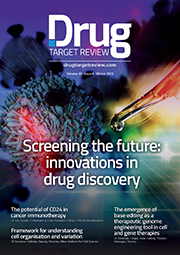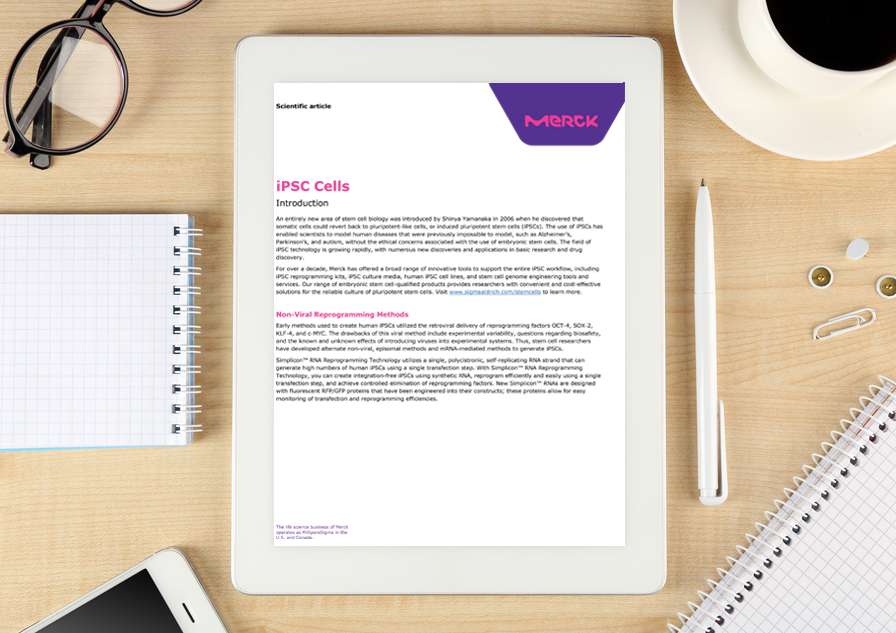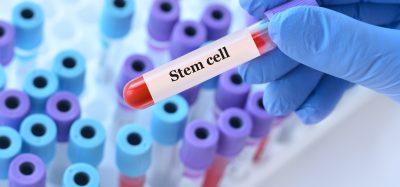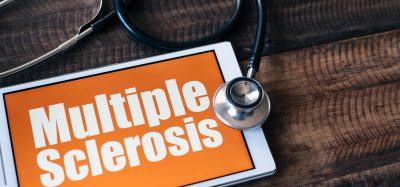Scientific article: iPSC Cells
Posted: 6 December 2017 | Merck KGaA | No comments yet
An entirely new area of stem cell biology was introduced by Shinya Yamanaka in 2006 when he discovered that somatic cells could revert back to pluripotent-like cells, or induced pluripotent stem cells (iPSCs).
The use of iPSCs has enabled scientists to model human diseases that were previously impossible to model, such as Alzheimer’s, Parkinson’s, and autism, without the ethical concerns associated with the use of embryonic stem cells. The field of iPSC technology is growing rapidly, with numerous new discoveries and applications in basic research and drug discovery.
For over a decade, Merck has offered a broad range of innovative tools to support the entire iPSC workflow, including iPSC reprogramming kits, iPSC culture media, human iPSC cell lines, and stem cell genome engineering tools and services. Our range of embryonic stem cell-qualified products provides researchers with convenient and cost-effective solutions for the reliable culture of pluripotent stem cells. Visit www.sigmaaldrich.com/stemcells to learn more.
This scientific article is restricted - login or subscribe free to access


Why subscribe? Join our growing community of thousands of industry professionals and gain access to:
- quarterly issues in print and/or digital format
- case studies, whitepapers, webinars and industry-leading content
- breaking news and features
- our extensive online archive of thousands of articles and years of past issues
- ...And it's all free!
Click here to Subscribe today Login here
Related content from this organisation
- Turning AI into a biological design engine
- Biotech leader champions targeted cancer treatments and diversity
- Product hub: Light the path to your next neuroscience discovery with a new ultrasensitive NF-L immunoassay
- A high-throughput macrodomain assay to identify coronavirus drugs
- Building a powerful portfolio of sepsis biomarker signatures for therapeutic clinical trials
Related topics
Stem Cells, Technology
Related organisations
Merck KGaA









